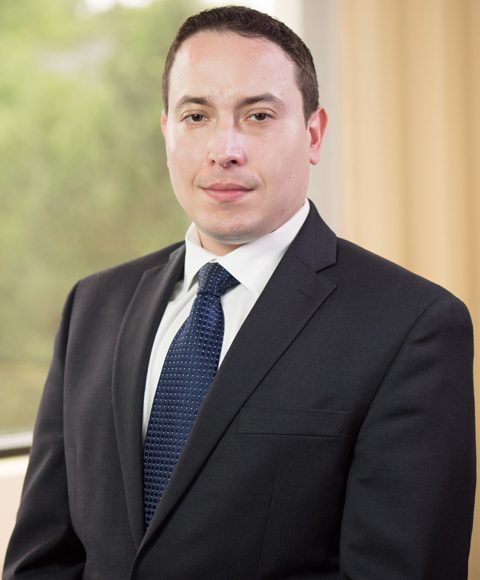A federal judge in the Northern District of New York has temporarily halted the issuance of the state’s first conditional adult-use retail dispensary (CAURD) licenses in five districts, including Western New York, Central New York, and the Finger Lakes. This will most likely be a precursor to more cannabis-related litigation in New York.
The court order was handed down as a result of a lawsuit by a Michigan applicant—Variscite NY One. Variscite’s arguments contend that New York’s conditions for applicants, especially the requirement of a principal residence in New York and that they or a family member has been convicted of a marijuana-related crime in the state, violate the U.S. Constitution’s safeguards for interstate commerce.
The state’s plan to launch recreational cannabis sales as early as this year could be in jeopardy as a result of the Northern District Court’s ruling.
Judge Gary L. Sharpe ruled that the state could not grant conditional licenses to operate dispensaries in Brooklyn, Central New York, the Finger Lakes, the Mid-Hudson area, or Western New York while the case was pending. This court order is estimated to affect 63 of the 150 licenses that the state had planned to grant to individuals and businesses that met the strict CAURD license requirements.
Current Landscape of the Cannabis Industry in New York
In March 2021, New York legalized cannabis for adult users ages 21 and older. With decades of regulations targeting individuals who cultivated, sold, and consumed cannabis, lawmakers set out to create a market that included those who had been found guilty of crimes or had been negatively impacted by New York’s marijuana laws for these early business opportunities.
In August and September of 2022, regulators accepted applications for the initial 150 retail dispensary licenses. When applying for the licenses, applicants had to choose the five zones in which they would like to operate a retail operation. The participants who were excluded were those with solely federal or out-of-state convictions, as well as those who had been arrested on cannabis-related offenses in New York but had not been found guilty.
Applicants could utilize a majority owner’s home or a corporate office to demonstrate a substantial presence in New York. According to the complaint, Variscite was not eligible for one of the initial licenses since it is headquartered in Michigan, where Kenneth Gay, the company’s primary owner, was convicted of a cannabis-related misdemeanor. However, the business still submitted an application, designating the five areas covered by the court’s injunction as its priority for placement.
According to Variscite, the state could accomplish its objectives by establishing entrepreneurial incubators and job training programs, for example. However, the company said that, if it was forced to wait for the next wave of licenses while other businesses received a head start, it would suffer irreparable harm.
The state set up a $200 million fund to secure storefronts and cover improvements, and the first licensees are eligible for loans. Additionally, a total of 884 individuals and businesses submitted applications for the program, while 19 nonprofit organizations requested 25 more licenses.
Could This Invite Further Cannabis Litigation Across New York State?
According to the court order, the state is currently permitted to proceed with issuing licenses in the remaining eight regions, which include the Capital Region. However, depending on the outcome of the suit, it could influence other rejected applicants to pursue some form of litigation.
As noted by Variscite, many businesses are nervous about the potential impact of not being selected for the first wave of CAURD licenses. With access to state loans and the opening market for recreational cannabis sales predicted to generate over $4 billion over the next five years, it is anticipated that those who may have been denied licenses, and who were applying from out of state, will file lawsuits, which could restrict other regions across the state.
While the ramp-up has been slow, more storefronts are expected to pop up throughout the year should the licenses for those in non-impacted areas of New York be issued. Those that have already opened in other areas of the state have seen excellent business, due in part to the sentiment of “history-making” through the first-ever legal sales of recreational marijuana in New York State. However, as mentioned earlier, depending on the outcome of this case, applicants who were denied for reasons similar to these could be inspired to pursue some form of litigation, which could end up jeopardizing the State’s expected cannabis industry ramp-up.
While New York is leading the current wave of states seeking to legalize the sale of recreational marijuana, there is also a question looming as to whether the results of the Variscite lawsuit could set a precedent for cannabis programs in other states. While the case is still a toss-up, states interested in the justice-involved approach could use this as a cornerstone when deciding matters in their respective states.
What’s In Store for the Future of this Suit and the New York Cannabis Industry?
The injunction suspending the issuance of the CAURD licenses in those aforementioned regions is currently in place pending a final resolution of the case or any further directive of the Court. While the injunction can last for an undetermined amount of time, many individuals who may have wanted these licenses will begin to smell blood in the water and could, as mentioned prior, pursue litigation of their own, which could restrict the eleven other regions not affected by the original decision.







